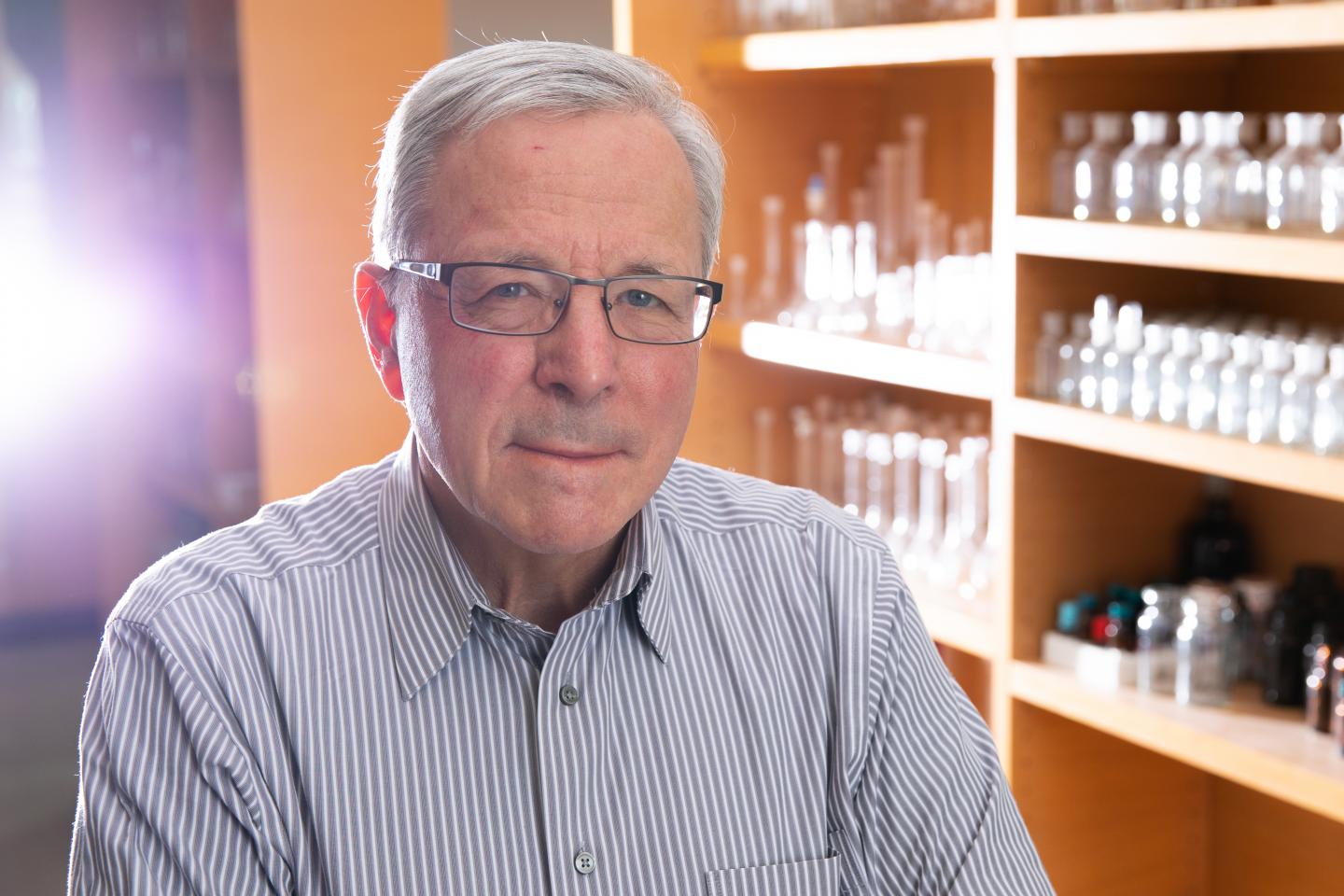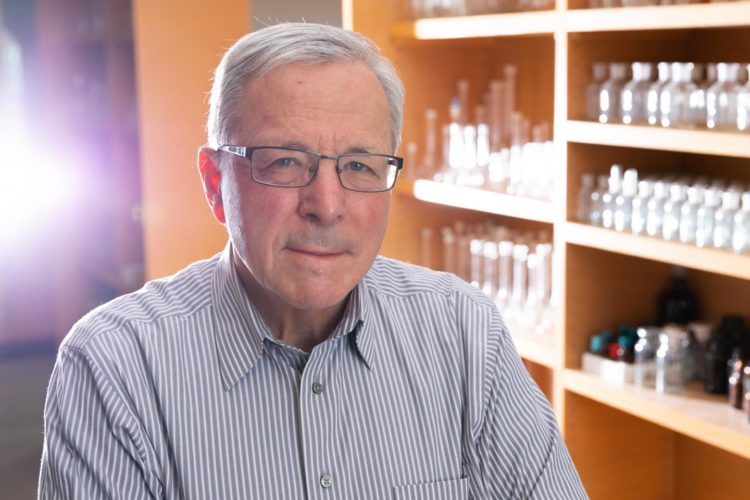One major objective is to understand molecular interactions that enable enzymes to accelerate chemical reactions

Credit: Credit: Meredith Forrest Kulwicki / University at Buffalo
BUFFALO, N.Y. — In the human body, proteins called enzymes help speed up chemical reactions that are vital for life.
After you eat, enzymes help your body break down food and obtain energy. Enzymes are also responsible for helping your liver rid your body of toxins, as well as many other imperative functions.
Now, a University at Buffalo-led research team is studying the details of how enzymes perform their job. The focus of the project is on understanding the molecular interactions that enable enzymes to accelerate chemical reactions.
The new five-year $2 million Maximizing Investigators’ Research Award (MIRA) from the National Institute of General Medical Sciences of the National Institutes of Health (NIH), titled “Studies on enzyme activation and novel modes of inhibition,” will allow the researchers to investigate a variety of problems related to the mechanism of enzyme action and inhibition.
“The chemicals in living cells are stable until they need to undergo one of the many enzyme-catalyzed reactions that support and propagate life,” explains lead scientist John Richard, PhD, SUNY Distinguished Professor of Chemistry in the UB College of Arts and Sciences. “Over the past century, scientists have made steady progress toward understanding the mechanism of action of enzymes, which are required to catalyze essentially every cellular reaction. This understanding has prompted advances on many fronts, including the development of interventions to cure metabolic diseases, the design of enzyme inhibitors with potential applications as drugs and the direct use of enzymes as therapeutic agents.”
Richard has received funding from the NIH since 1988 to support research on a variety of topics related to enzyme mechanisms. The results from this research have added to a body of fundamental knowledge, which serves as the underpinning for translational research in the health sciences.
“Professor Richard has made seminal contributions in the elucidation of enzymatic reaction mechanisms,” says David F. Watson, PhD, professor and chair of the UB Department of Chemistry. “His receipt of a MIRA from the NIH is a testament to the impact of his scholarship. The funds will support the training of researchers and will further enhance our department’s stature as a home for cutting-edge research in chemical biology.”
Collaborators on the project include Andrew Gulick, PhD, associate professor of structural biology in the Jacobs School of Medicine and Biomedical Sciences at UB, who will play the lead role in the determination of X-ray crystal structures for interesting enzyme complexes; Lynn Kamerlin, PhD, at Uppsala University in Sweden, who will direct computational studies to model the utilization of substrate binding interactions in enzyme activation; and Hiroaki Suga, PhD, at the University of Tokyo in Japan, who will develop libraries of cyclic peptides that show high specificity for inhibition of metabolic enzymes from parasitic compared with mammalian organisms.
###
Media Contact
Charlotte Hsu
[email protected]
716-645-4655
Original Source
http://www.





